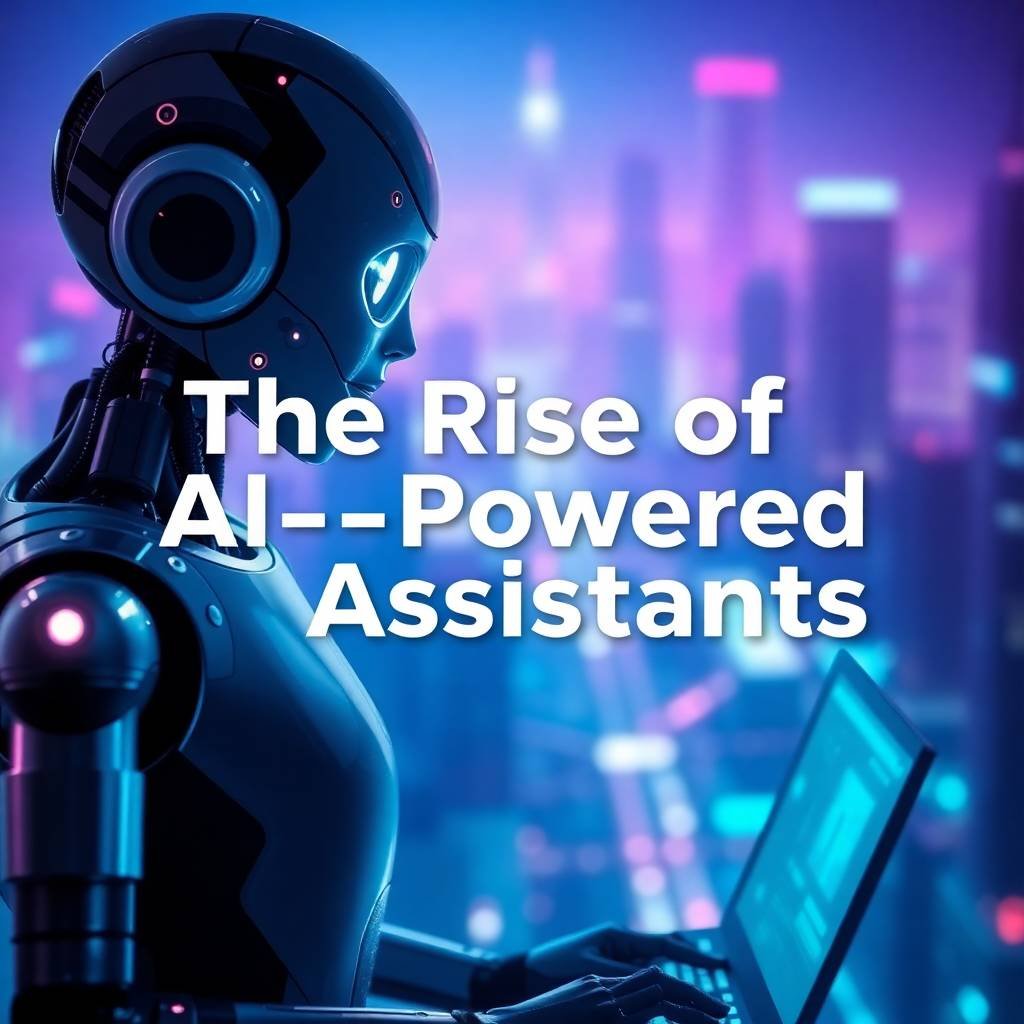In today’s fast-paced digital world, AI-powered assistants have rapidly become indispensable tools, seamlessly integrating into our daily lives. From managing our schedules to controlling smart home devices, these virtual companions are transforming the way we interact with technology. But what exactly are AI-powered assistants, and how did they evolve to become such a vital part of modern living?
AI-powered assistants are sophisticated software applications that utilize artificial intelligence to perform tasks or services based on commands or questions. Their evolution can be traced back to the early days of voice recognition technology, but recent advancements in machine learning and natural language processing have propelled them to new heights of functionality and integration.
Key Features and Capabilities
Natural Language Processing (NLP)
At the heart of AI-powered assistants lies their ability to understand and respond to human language, thanks to advancements in Natural Language Processing (NLP). This technology enables these assistants to interpret spoken or typed commands, making interactions more intuitive and conversational. Recent developments in voice recognition have further enhanced their ability to accurately understand diverse accents and dialects, improving accessibility for users worldwide.
Machine Learning and Personalization
AI-powered assistants leverage machine learning algorithms to continuously learn and adapt to user preferences. This ability to personalize interactions ensures that the assistant can provide more relevant and tailored responses over time. Whether it’s remembering your daily routine or suggesting personalized content, these assistants use historical data to offer an increasingly bespoke experience.
These features underscore the transformative potential of AI-powered assistants, making them more than just tools but true partners in enhancing productivity and convenience.
Popular AI Assistants in the Market
Household Names
In the realm of AI-powered assistants, a few key players have established themselves as household names, each with its own unique features and integrations.
- Amazon Alexa: Known for its versatility, Alexa powers a wide range of smart devices and has an extensive skill set, from managing shopping lists to controlling home automation systems. Its compatibility with numerous third-party applications makes it a popular choice for smart home enthusiasts.
- Google Assistant: Leveraging Google’s vast search capabilities, Google Assistant excels in providing detailed and accurate information quickly. It integrates seamlessly with Android devices and Google services, offering a cohesive ecosystem for users heavily invested in Google’s platform.
- Apple Siri: Built into Apple devices, Siri offers a user-friendly interface with strong security and privacy features. It integrates well with Apple’s ecosystem, making it a go-to assistant for users looking for seamless device interaction and hands-free control.
Emerging Players
While the top contenders dominate, several other AI assistants are carving out niches in the market.
- Microsoft Cortana: Initially launched as a competitor in the personal assistant space, Cortana is now pivoting towards business applications, focusing on productivity tools within Microsoft Office products.
- Samsung Bixby: Designed to integrate with Samsung’s array of products, Bixby is tailored for device control and offers unique features like visual search capabilities, enhancing the user experience on Samsung devices.
The Impact on Daily Life
Enhancing Productivity
AI-powered assistants are redefining productivity by automating routine tasks and managing schedules with ease. They can set reminders, send messages, and organize calendar events, allowing users to focus on more critical tasks. Additionally, these assistants can control smart home devices, enabling users to adjust lighting, temperature, and security settings through simple voice commands, contributing to a more efficient and connected living environment.
Transforming Communication
AI assistants are also revolutionizing communication by providing real-time language translation, breaking down language barriers and facilitating global interactions. This capability is particularly beneficial in business settings, where seamless communication is crucial. Moreover, AI-powered assistants are enhancing customer service by offering immediate, 24/7 support through chatbots and automated responses, improving user satisfaction and streamlining operations.
The integration of AI assistants into everyday activities is not only making life more convenient but also fostering a more interconnected and responsive world.
Challenges and Ethical Considerations
Privacy and Data Security
As AI-powered assistants become more integrated into our lives, concerns about privacy and data security have come to the forefront. These assistants often require access to personal data to function effectively, raising questions about how this information is stored, used, and protected. Ensuring robust data protection measures and compliance with privacy regulations is crucial to maintaining user trust and safeguarding sensitive information from potential breaches.
Dependency and Job Displacement
While AI assistants offer numerous conveniences, there is a growing concern about becoming overly dependent on these technologies. As they take on more responsibilities, there is a risk that users may become reliant, potentially impacting critical thinking and problem-solving skills. Moreover, as AI continues to automate tasks, certain job roles may face displacement, necessitating a shift in workforce skills and the creation of new job opportunities in AI and tech-related fields.
Addressing these challenges requires careful consideration and proactive measures to ensure that the benefits of AI-powered assistants are realized without compromising ethical standards or exacerbating societal issues
Conclusion
The rise of AI-powered assistants marks a new era in how we interact with technology, offering unprecedented convenience and efficiency in our daily lives. These digital aides are not only enhancing productivity and communication but also paving the way for a more interconnected and intelligent world.
However, as we embrace the capabilities of AI assistants, it is crucial to address the challenges they present, particularly in terms of privacy, security, and workforce impact. By fostering responsible development and deployment, we can harness the full potential of AI-powered assistants while ensuring ethical standards and societal well-being.
Looking forward, the continuous evolution of AI technology promises even greater integration with emerging innovations such as the Internet of Things and smart cities. As these assistants become more sophisticated, they will play an increasingly vital role in shaping our future interactions with technology, driving efficiency, and creating new opportunities for growth and innovation.

